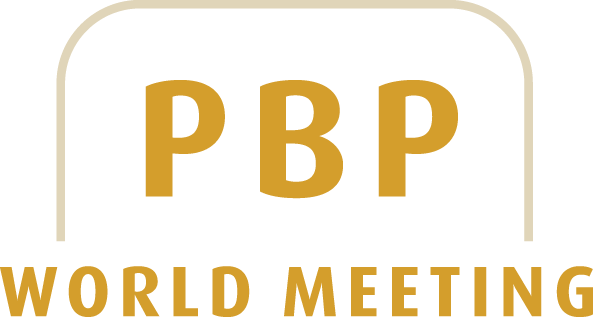INVITED SPEAKER (sorted by the alphabet)

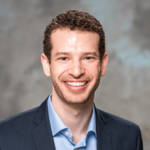
Abramson, Alex
Alex Abramson, PhD is an Assistant Professor in the School of Chemical and Biomolecular Engineering at The Georgia Institute of Technology. Dr. Abramson’s lab designs wearable, ingestible, and implantable technologies that hold profound implications in treating chronic diseases such as diabetes, cancer, and heart failure. These biomedical devices have been featured in news outlets such as The New York Times, NPR, and Wired. Dr. Abramson has received several recognitions for scientific innovation, including being named a member of the Forbes 30 Under 30 Science List and the MIT Technology Review Innovators Under 35 List.

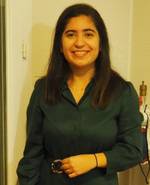
Atallah, Carla
Carla Atallah, PhD, is a scientist in the Drug Delivery and Formulation mRNA Center of Excellence at Sanofi, with 7 years of experience specializing in formulation. She is currently focused on the formulation and characterization of Lipid Nanoparticle (LNP) mRNA. Carla obtained her PhD from Lyon 1 University in 2020 and completed her Postdoctoral research in collaboration with Sanofi, specializing in mRNA formulation within LNP. Carla has authored several articles and actively participated in various international conferences.


Awad, Atheer
Dr Atheer Awad is a Lecturer in Pharmaceutics at the University of Hertfordshire. She received her BSc in Pharmacy from Applied Science Private University (Jordan) in 2015. She then pursued an MSc and a PhD in Pharmaceutics at University College London (UK). Dr Awad's research harnesses her expertise in 3D printing, digital health technologies, and site-specific drug delivery towards application in personalised and transformative medicines. Atheer received multiple awards and honours, including Clarivate’s Highly Cited Researcher, Forbes 30 Under 30, International Pharmaceutical Federation’s FIPWiSE Rising Star, and MIT Technology Reviews’s Innovator Under 35.

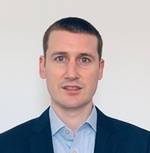
Close, Edward
Dr. Edward Close is Head of the Bioprocessing Process Modelling Competency Centre at Siemens Digital Industries Software. He has an Engineering Doctorate in Biochemical Engineering from University College London in collaboration with Pfizer. Edward has over 10 years’ experience at Siemens leading the development and application of Siemens mechanistic and hybrid modelling solutions to deliver value to across the pharmaceutical industry.

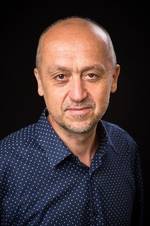
De Smedt, Stefaan
Professor De Smedt graduated from Ghent University in 1995 and joined Janssen Research Foundation. In 1999 he became Professor at Ghent University where he initiated research on delivery of bio-therapeutics and nanomedicines. He served as dean of his faculty and has been a member of the Board of Directors of UGent and its Academic Hospital. He has been a Guest Professor at various universities. Since 2004 he serves as Editor of the Journal of Controlled Release which he now leads as Editor-in-Chief.

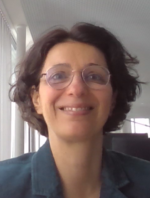
Desset-Brèthes, Sabine
Sabine Desset-Brèthes is currently a Technical Project Leader in the Cell and Gene Therapy Unit at Novartis for a variety of CART programs.
She completed her PhD in Physical Chemistry in Paris in 1999 and has more than 20 years of drug development experience in industry. This experience spans from technical to clinical development of cell and gene therapies, biologics and small molecules. She held various other roles including Pediatrics Network Leader, Clinical Scientist Director and Biologics Project Office Head inspired by a deep desire to be at the forefront of innovation in the pursuit of better healthcare solutions for patients.


Erhardt, Carsten
Carsten Ehrhardt is Professor in Pharmaceutics and Biopharmaceutics at the School of Pharmacy and Pharmaceutical Sciences, Trinity College Dublin (TCD). In 2013, he was elected Fellow of TCD. Carsten’s research studies the disposition and transport of drugs following their administration to the lungs using pre-clinical in vitro and ex vivo models. Moreover, he is interested in molecular origins of airways disease. Carsten has edited 1 book and (co-) authored >110 peer-reviewed publications and over 250 abstracts. He serves as Associate Editor of Journal of Aerosol Medicine and Pulmonary Drug Delivery and Section Editor of European Journal of Pharmaceutical Sciences.

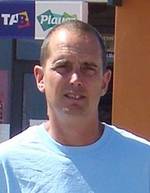
Forbes, Ben
Ben is Professor of Pharmaceutics at King’s College London. He has a BPharm from King’s College London (1987) and a PhD in Drug Delivery from Strathclyde University (1996). He is a registered pharmacist in the UK and before doctoral studies, he worked in hospital pharmacy in London and Sydney, and for Inveresk Clinical Research in Edinburgh. He was appointed to the academic staff of King’s College London in 1997. Ben has worked extensively in the area of Inhalation Biopharmaceutics with interests in inhaled medicine formulation, the development and application of techniques to study respiratory drug transport and metabolism, and inhalation toxicology.


Fracchia, Sergio
Sergio presently works as Global Director RegCMC – Cell and Gene Therapy. He joined Novartis in 2016 and in the position he followed successful BLA and MAA filing of Kymriah in the US, EU, Switzerland, Japan Australia and Canada. After having successfully filed for FIH clinical trial a gene editing product for beta thalassemia, he is currently leading the development of a portfolio of next generation CAR-Ts presently close to approaching late stage development.
Since 2001 he covered the position of QC head and Regulatory Affairs in Molmed (Milan), where he followed the manufacturing, non-clinical and clinical development of more than 15 cell and gene therapy investigational medicinal products through entire life cycle from the very early preclinical and clinical stage to the late clinical stages, and up to filing and MAA approval for Zalmoxis and Strimvelis.
He started his professional life with 1 year post-doctoral research in biochemistry, followed by 15 years of experience at Merck/Serono where he worked in head of cell amd molecular lab focussed on cell bank characterization.
Formal education includes a MSc in Biology and a PhD in Biotechnology.

Garidel, Patrick
Dr Patrick Garidel is currently Head of Pharmaceutical TIP at Boehringer Ingelheim Pharma GmbH & Co. KG. He has a long experience in the development of biologics from early phase to blockbuster products. His activities focus on the development of biologics from the downstream process to drug product (liquid and solid formulations, lyophilization). His expertise includes drug delivery system and formulation development, packaging/devices, process development, bioanalysis and protein purification. He has established innovative platform technologies for e.g. powder inhalation, gene therapy, in silico based predictive tools for molecular properties, particle analytics. He is also interested in developing new concepts and strategies for protein purification, stabilisation, delivery and protein/colloid chemistry in general. PG studied Chemistry and Biotechnology at the University of Kaiserslautern, Pharmaceutical Sciences and Regulatory Affairs at the University of Strasbourg and Intellectual Property at the University of Koblenz-Landau. He holds a PhD in biophysics. During his academic career he held various academic positions at the Institute for Pharmaceutical Technology and Biopharmacy, Physical Chemistry at the Martin Luther University Halle-Wittenberg, DESY/Hamburg, Rutgers University and the Hospital for Special Surgery/New York.


Gazeau, Florence
Florence Gazeau, PhD in solid state physics (Université Paris Diderot, 1997) is senior scientist at CNRS (DR1). She is deputy director of the lab Matière et Systèmes Complexes (MSC) UMR7057 CNRS / Université Paris Cité since 2016. She has created the antenna MSC Med (https://msc-med.u-paris.fr/) on the Campus Saint Germain (45 rue des Saints Pères) in order to promote translational research and innovation in nanomedicine and subcellular biotherapies. Amanda Silva Brun and Florence Gazeau launched in 2020 the first expertise platform (https://iveth.u-paris.fr) dedicated to the bioproduction, characterization and engineering of extracellular vesicles and nanovectors for the diagnostic et personalized therapies. The IVETh platform has been labeled as national industrial integrator for bioproduction and biotherapies en 2022. F. Gazeau participated to the creation of two spin-off : EVerzom for the industrial bioproduction of extracellular vesicles with the technology of turbulence and Evora Bioscience for the development of EV-based biotherapies. Florence Gazeau is recognized for her pioneering works in nanomagnetism and nanotechnology applied to medecine (magnetic labelling of cells, MRI tracking of cell migration in vivo, magnetic cell manipulation for tissue engineering, photo-induced or magnetic hyperthermia to modulate the tumor microenvironment in cancer treatment ). She initiated the first multiscale follow-up of the fate and life cycle (degradation, recycling, rebiomineralization) of metallic nanoparticles in the organism. The group exploits a biomimetic strategy with biogenic EVs from immune or stem cells for targeted and optimized drug or protein delivery. Florence Gazeau is author of about 192 international publications with more than 17000 citations and 10 patents among which 4 have been licensed.

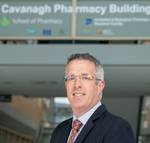
Griffin, Brendan
Brendan Griffin is currently Professor of Pharmaceutics and Head of School of Pharmacy at University College Cork. His research interests include formulation technology to improve oral drug delivery and computational pharmaceutics tools to streamline drug product development. He has authored over 100 peer reviewed publications; he is Project Coordinator of the €4m H2020 funded Marie Curie Innovative Training Network (ITN) ‘InPharma’ ITN (https://www.inpharma-network.eu/) to establish a new fully integrated, animal-free, end-to-end modelling approach in oral drug product development. He is also a funded PI in the Colotan ITN - an EU consortium for developing innovative colon targeting drugs colotan-etn.eu

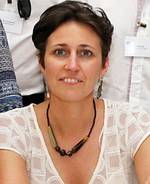
Heuzé-Vourc’h, Nathalie
Nathalie Heuzé-Vourc’h, Research Director at INSERM, the National Institute of Biomedical Research in France. She leads a multidisciplinary team in the Research Centre for Respiratory Diseases (CEPR, INSERM U1100) in Tours, dedicated to the “Phamarcology of inhaled Pharmaceuticals”. After graduating with her Ph.D. in oncology in France, she focused her research on lung diseases and obtained a postdoctoral position in the division of pulmonary and critical care medicine (Dr Steven M. Dubinett) at UCLA, California. She gained interest in biotherapeutics working in a start-up (Agensys Inc., Santa Monica, California) developing anticancer monoclonal antibodies and was recruited in 2005 by INSERM as a young research scientist to continue working on this topic. She is currently supervising several projects on the multifaceted aspects of the delivery of biotherapeutics -mostly monoclonal antibodies- by inhalation to treat respiratory diseases, from formulation to preclinical safety, with both academic and private partners. She has published more than 70 peer-reviewed papers and book chapters. She is one of the European opinion leaders on inhalation of biotherapeutics and serves, since 2022 part time, as project manager for the INSERM Thematic Institute of Health Technologies.

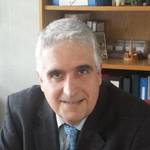
Irache, Juan
Professor at the Faculty of Pharmacy and Nutrition in the University of Navarra.
His research focuses on the design and evaluation of nanocarriers for the delivery of drugs, actives and biomacromolecules through biological barriers.
Prof. Irache serves as Editor of Reviews of “International Journal of Pharmaceutics” and he is Corresponding Member of the French National Academy of Pharmacy and the Royal Academy of Pharmacy of Catalonia (Spain).


Kuentz, Martin
Prof. Dr. Martin Kuentz lectures since 2007 at the University of Applied Sciences and Arts Northwestern Switzerland where he leads a research group on oral formulations of poorly soluble drugs with a special emphasis on advanced analytics and computational modeling. Prior to his academic assignment, Dr. Kuentz spent nearly seven years at F. Hoffmann-La Roche Ltd. in pharmaceutical research and development. The preceding PhD thesis was about the physics of pharmaceutical compaction at the University of Basel where he studied earlier pharmacy with additional semesters in physical chemistry. Professor Kuentz has more than 160 articles to his name, has given numerous talks at international conferences and he is a work package leader in the EU projects PEARRL and InPharma.

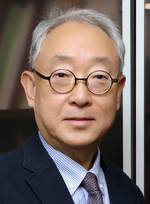
Kwon, Ick Chan
Dr. Ick Chan Kwon is a Tenured Principal Research Scientist of Korea Institute of Science and Technology (KIST), Dean of KU-KIST Graduate School, Korea University as well as Affiliated Professor in Dept. of Bioengineering, University of Washington Seattle. He is currently a Presidential Scholar at KIST-DFCI On-Site-Lab in Dept. of Cancer Biology, Dana Farber Cancer Institute at Boston. He received his B.S. and M.S. degrees in Dept. of Textile Engineering, Seoul National University and his Ph.D. in Pharmaceutics and Pharmaceutical Chemistry from Univ. of Utah. After a post-doctoral training at Center for Controlled Chemical Delivery in Univ. of Utah, he joined KIST where he started his research on polymeric nanoparticle-based drug delivery system for antibiotics, anticancer drugs, and gene therapy. He also pioneered in research filed of Theragnosis, by combining molecular imaging and drug delivery system with smart nano-probes. He served as a president of the Korean Society of Molecular Imaging and served as an Editor for Asia of the Journal of Controlled Release (Elsevier). He is a fellow of The Korean Academy of Science & Technology and a senior member of The National Academy of Engineering of Korea.

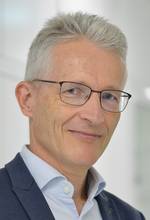
Maeder, Karsten
Karsten studied Pharmacy at the Humboldt-University in Berlin. After completion of his PhD he was a DAAD Postdoc at Dartmouth Medical School (NH, USA). He returned to HU Berlin with a DFG grant to complete his habilitation, followed by postdoc positions in Marburg and at the Free University Berlin. After an industrial position at Roche in Basle he became a Full Professor of Pharmaceutics at the Martin Luther University Halle-Wittenberg. Main research areas include polymer-, lipid- and phospholipid drug delivery systems (DDS), biodegradable controlled release dosage forms, noninvasive in vitro and in vivo characterization of DDS, and the enhancement of oral bioavailability.


Malcolm, Karl
Karl is Professor of Drug Delivery at the School of Pharmacy, Queen's University Belfast. His research interests lie primarily within the pharmaceutical sciences, and particularly in the application of drug delivery technologies to women's sexual and reproductive health. For the past 20 years, Karl's research group has been instrumental in developing new drug-releasing vaginal rings, most notably sustained/controlled release antiretroviral-releasing rings for the prevention of HIV infection and next-generation multipurpose ring devices that additionally offer hormonal or non-hormonal contraception.

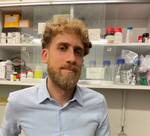
Malfanti, Alessio
Alessio Malfanti is currently a Senior Lecturer (Ricercatore di Tipo B) at the University of Padova, Italy. After his Master’s degree in Pharmaceutical Chemistry and Technology (University of Torino, Italy), he first obtained a research fellowship and then a PhD fellowship at the University of Padova (Italy) where he completed the Doctoral Program in Pharmaceutical Sciences under the supervision of Prof. Paolo Caliceti. In 2017, he had the chance to spend 8 months as a PhD visiting student at the Sackler School of Medicine at Tel Aviv University (Tel Aviv, Israel) in the team of Prof. Ronit Satchi-Fainaro. In 2018, he moved to the Centro de Investigacion Principe Felipe (Valencia, Spain) in the Polymer Therapeutics Lab led by Dr. Maria J. Vicent widening his research topics, expanding his network, and focusing his work on polymer therapeutics applied to anticancer immunotherapy. Following this experience, in 2020 he has been awarded with the Marie Skłodowska Curie Individual Fellowship and he started a second postdoc in the Advanced Drug Delivery and Biomaterials Lab at the University of Louvain (Brussels, Belgium) headed by Prof. Veronique Preat. Here, he coordinated the the section of Polymer Therapeutics.
Dr. Malfanti’s research interests are at the interface among polymer chemistry, nanomedicine and biology covering unmet clinical needs. He has focused his work on engineering polymer therapeutics for local treatment, cancer immunotherapy, vaccine development and synergistic drug combination therapy in the context of “cold cancers” such as glioblastoma, breast cancer and metastatic melanoma.


Murugesan, Sathyabalan
A successful and self motivated Biotech scientist in Biopharma analytical area with reputed industrial work experience. He is Co-Founder and Director from Theertha Biopharma and Consultant at Bhami Research.

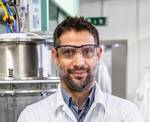
Nagy, Zsombor
Zsombor K. Nagy is the head of FirePharma research group at Budapest University of Technology and Economics. His primary research interests encompass continuous pharmaceutical manufacturing, dissolution enhancement and process analytical technology. In 2015, in collaboration with Janssen Pharmaceutica, he played a pivotal role in the development of a scaled-up nanofiber manufacturing technology known as highspeed electrospinning. More recently his research has revolved around wet and melt twin-screw granulation, Raman-, NIR- and UV-imaging, dissolution prediction, continuous film coating, particle size measurement by machine vision. He has published more than 130 peer-reviewed scientific papers (independent citations: >3000). Website: firepharma.bme.hu


Nitert, Bart
Bart Nitert is a Principal Scientist at Janssen R&D in Belgium, with 20 years of experience developing drug products to improve patients’ lives around the world.
Prior to joining Janssen, Family of Pharmaceutical Companies of Johnson & Johnson, Bart worked in various drug product development roles at different companies as scientist, team leader, and CMC project leader.
In his current role, he is leading the Continuous Manufacturing team of Oral Solids Development and representing the function in various strategic teams that are rolling out Continuous Drug Product Manufacturing within Janssen.
Next to his role within Janssen, Bart is participating in several working groups on Continuous Manufacturing within the IQ Consortium and Enabling Technologies Consortium and he has led the team responsible for the Roller Compaction chapter in ISPE Good Practice on Continuous Manufacturing.
Bart earned a PhD degree in Chemical Engineering from The University of Sheffield, United Kingdom, a Master degree in Pharmaceutical Engineering and a Master degree Pharmacy from the University of Groningen, The Netherlands.

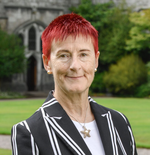
O’Driscoll, Caitriona
Originally a Pharmacist, Caitriona has over 30 years experience as a drug delivery scientist.
Her research is focused on the design and delivery of RNA therapeutics for chronic conditions including Crohn’s disease, prostate cancer and neurodegenerative diseases.
Targeted delivery to diseased sites is achieved by a non-viral approach using novel biomaterials including modified cyclodextrins. Caitriona is the Director of the UCC Future Medicines research initiative.
She is coordinator of Genegut, a Horizon Europe funded project entitled Oral delivery of encapsulated RNA nanotherapeutics for targeted treatment of ileal Crohn's disease, which has 9 partners from 8 different countries.
genegut.eu


Peer, Dan
Dan Peer is a Professor and the Director of the Laboratory of Precision NanoMedicine at Tel Aviv University (TAU). He is also the Vice President for Research and Development at Tel Aviv University. From 2017 - Present, he is the Founding and Managing Director of the SPARK program of Translational Medicine at TAU.
Prof. Peer’s work was among the first to demonstrate systemic delivery of RNA molecules using targeted nanocarriers to the immune system and he pioneered the use of RNA interference (RNAi) in immune cells. His lab was the first to show systemic, cell specific delivery of modified mRNA in an animal to induce therapeutic gene expression of desired proteins. This has enormous implications in cancer, inflammation and infection diseases (e.g. COVID 19 mRNA vaccines). In addition, his lab was the first to show high efficiency, systemic, cell specific therapeutic genome editing in cancer.
Prof. Peer has more than 130 pending and granted patents. Some of them have been licensed to several pharmaceutical companies and one is currently under registration (as a new biological drug in Inflammatory Bowel Disease). In addition, based on his work, five spin-off companies were generated aiming to bring innovative personalized medicine into clinical practice.
Prof. Peer received more than 30 awards and honors and he serves on the scientific advisory board and as Board Member of more than 15 companies, and on the editorial board of more than 20 journals. In 2014, he was elected to the Israel Young Academy and in 2023 he was elected to the US National Academy of Engineers (NAE).

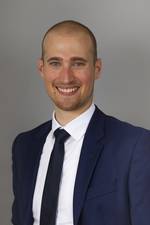
Radius, Michael
Michael Radius is currently the group leader regulatory affairs at Lipoid GmbH where he is one of the responsible persons for communication with pharmaceutical companies and regulatory authorities.
He is an inorganic chemist by training and worked in different functions for quality assurance at Lipoid GmbH.

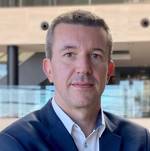
Ramoneda, Marc
Marc Ramoneda has a background in Chemical Engineering and an international MBA. With more than 20 years of experience in the biopharmaceutical process industry always in the area of engineering and control automation, is currently engaged with Klinea Biopharmaceutical Engineering with the role of Managing Director for Europe and Head of the Digital Transformation Business Unit. Recently has started a new journey with Appliant as a Partner & CEO, to promote applications (apps) GMP compliant to enhance operational efficiency within the biopharmaceutical manufacturing industry.

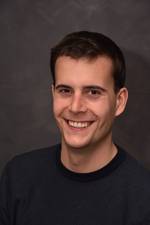
Rosenbaum, Christoph
Christoph Rosenbaum studied pharmacy in Greifswald (Germany) and successfully completed his studies in 2018 with his licence to practise pharmacy.
From 2018 to 2021, he worked as a research assistant and PhD student at the Institute of Pharmacy in the Department of Biopharmacy and Pharmaceutical Technology under the supervision of Prof. Dr. Werner Weitschies. During his PhD, which he successfully completed in 2021, he worked on the development of an innovative esophageal drug delivery technology and its biorelevant in vitro release characterisation.
Since 2022, Christoph Rosenbaum has been working as a postdoctoral fellow at the Institute of Pharmacy at the University of Greifswald in the field of development and characterisation of innovative dosage forms for the gastrointestinal tract.

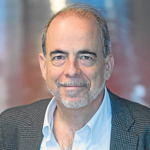
Santamaría Ramiro, Jesús
Prof. Santamaria studied Chemistry/Chemical Engineering at the University of La Laguna (Spain) and did his PhD at Salford University (England), with postdoctoral stays at Notre Dame University (1989) and Massachussetts Institute of Technology (2008), both in the USA. Currently he is a Professor of Chemical Engineering at the University of Zaragoza in Spain, and group leader at the Nanoscience and Materials Institute of Aragon (INMA).
Prof. Santamaría´s work has been acknowledged by numerous awards and other forms of recognition. In particular, he has obtained, two of the highly prestigious ERC Advanced Grants (HECTOR, 2011-16 and CADENCE, 2017-23). He has published 374 peer-reviewed manuscripts (Over 20400 citations, h=74, Google Scholar), obtained 26 patents and delivered over 500 presentations at scientific meetings, including 89 invited conferences as plenary or keynote speaker. In addition, he has organized 5 international scientific conferences. For 21 years, (2000-2021) he was Editor of the Chemical Engineering Journal the world reference journal in this field.
His group Nanostructured Films and Particles (NFP) specializes in the development of high-precision, scalable synthesis of nanomaterials and on the applications of the structures synthesized, in fields that include:
- unconventional catalysis (catalysis assisted by electromagnetic fields, including light, microwaves and magnetic fields)
- nanostructured sensors capable of molecular recognition, especially for gas phase molecules
- materials for nanomedicine, including novel vectors for drug delivery and materials for bio-orthogonal catalysis.
- Nanosafety: nanomaterials-related risks and ways to avoid them.


Sanzenbacher, Ralf
Ralf Sanzenbacher, PhD, graduated in biology with a focus on immunology. Following postdoctoral research, he joined the Paul-Ehrlich-Institut (PEI), where he continued his scientific studies on cellular signaling and virus-host cell interactions. Since 2006, he has been involved in the scientific evaluation of tissue-preparations and cell-/tissue-based medicinal products within national and European regulatory procedures. Until Oct 2022, he served as senior scientific and regulatory assessor and deputy head of the section “Tissue Engineering and Somatic Cell Therapy Medicinal Products”, which recently has been integrated in a new Division Hematology, cell and gene therapy. In addition, he is member or advisor to several cell therapy expert panels.


Satchi-Fainaro, Ronit
Ronit Satchi-Fainaro is a full Professor at Tel Aviv University, where she is head of the Cancer Research & Nanomedicine Laboratory, Director of the Cancer Biology Research Center, and Director of the TAU Kahn 3D BioPrinting Initiative. She received her B.Pharm. from the Hebrew University in Jerusalem and her Ph.D. from the UCL, followed by a Postdoctoral Fellowship at Harvard University and Children’s Hospital Boston. She has published 155 manuscripts, and is inventor on 70 patents. She founded three spin-off companies, initiated 2 clinical trials, and is actively engaged in translational research with several industry partners and in science outreach.


Schubnel, Laurent
Laurent SCHUBNEL is Engineer in Biology and graduated a master in business management. He’s been working in the Personal Care and Pharmaceutical business for 22 years now, both in the finished products and raw material industry.
Due to his strong affinity with sustainability, he developed an expertise around CSR which led him to become the Gattefossé Group CSR Leader.


Sikanen, Tiina
Tiina Sikanen is an associate professor (pharmacometabolomics) at the Faculty of Pharmacy, University of Helsinki (UH), Finland. She has PhD (2007) and title of docent (2014) in pharmaceutical chemistry, UH; second MSc (2010) in chemical engineering, Aalto University, Finland; and postdoctoral experience from DTU (2011) and University of Toronto (2014). Her research focuses on development of microfluidic in vitro models to examine pharmaceuticals metabolism and toxicity in human (drug discovery) and fish (environmental hazards). She has co-authored >100 research articles/proceedings and >10 invention disclosures/3 patent applications, and received >6 MEur competed research funding, including two ERC grants (2012, 2019).


Stegeman, Sven
Sven Stegemann is the Chief Executive Officer of the Leibniz JointLab “First in Translation” (fiT) in Aachen (Germany) and professor of patient centric drug design and manufacturing at the Graz University of Technology (Austria). He is pharmacist by education and worked for 30-years in the pharmaceutical industry, as an advisor to major pharmaceutical companies on ways to improve the formulation design, development and manufacture of pharmaceutical products including advanced drug delivery and manufacturing technologies and controls. Since 2022 he is the CEO of the Leibniz JointLab fiT a newly build clinical manufacturing facility embedded in the RWTH & University Hospital Aachen campus translating academic research into clinical evidence. In his academic role, he focuses his research on the rational development of patient centric drug products and their associated manufacturing technologies, as well as education and training of students and young scientists. Beside many other initiatives he started the industrial-academic collaboration partnership Patient Centric Medicine (PaCeMe) to develop guidance for patient centric drug product design.

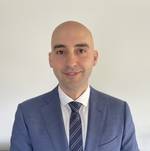
Svilenov, Hristo
Hristo Svilenov is an associate professor of biopharmaceutical production technology at Ghent University. He did his postdoctoral training at the Technical University of Munich after obtaining a PhD in Pharmaceutical technology from the Ludwig Maximilian University. He received several prizes, including the Carl Wilhelm Scheele Award from the DPhG and the Abbvie doctoral thesis award. The group of Prof. Svilenov focuses on the development, manufacturing, and formulation of biotherapeutics.


Taylor, Lynne S.
Lynne S. Taylor is the Retter Distinguished Professor of Pharmacy in the Department of Industrial and Physical Pharmacy, Purdue University. Prior to moving to academia, she spent several years working at AstraZeneca in Sweden developing new drugs. Lynne received a Bachelor of Pharmacy degree with First Class Honours from the University of Bath in the UK. Her PhD was undertaken at the University of Bradford, UK, in the area of Pharmaceutical Technology. After her PhD, Lynne was a postdoctoral researcher at the University of Wisconsin-Madison. Research in Lynne’s group is directed toward exploring the science underlying the preformulation, formulation and manufacturing of drugs and other bioactive substances, with a particular focus on poorly water soluble compounds. She has published more than 350 peer reviewed articles. Lynne has received a number of awards including the Coblentz Society Craver Award in Applied Vibrational Spectroscopy (2014), the Journal of Pharmaceutical and Biomedical Analysis Outstanding Manuscript award (2007), the Ebert prize for the best manuscript in the Journal of Pharmaceutical Sciences (2012) and the Pharmaceutical Research meritorious manuscript award (2012), the Provost’s Award for Outstanding Graduate Student mentor (2019) and the Dale E. Wurster Research Award (2020). Lynne is a Fellow of the Royal Society of Chemistry and the American Association of Pharmaceutical Scientists, and is editor-in-chief of the ACS journal, Molecular Pharmaceutics. In her spare time she enjoys running, swimming, biking and cooking.

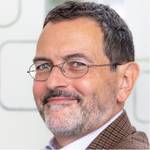
Tirelli, Nicola
Nicola studied Chemistry at the University of Pisa, and holds a PhD in Industrial Chemistry from the same University. He moved to the ETH Zurich during his PhD, and stayed there as a postdoc. From an initial focus on macromolecular chemistry and electro-optics, he switched to biomaterials and drug delivery, firstly at the ETH and then at the University of Manchester, where he held the Chair of Polymers and Biomaterials (School of Pharmacy) from 2005. In 2017 he joined the Italian Institute of Technology (IIT) in Genova, where he also acts as the Associate Director for Education.


Vermonden, Tina
Tina Vermonden obtained her Ph.D. degree in 2005 in Organic Chemistry at Wageningen University. In 2005, she joined the Department of Pharmaceutics at Utrecht University (The Netherlands) as a postdoc working on hydrogels as scaffolds for tissue engineering. During an exchange project, she worked on the diffusion of macromolecules in hydrogels at the Department of Pharmaceutics at the University of Minnesota (Minneapolis, USA) in the group of prof. R.A. Siegel in 2008.
In 2009, she was appointed as assistant professor and in 2014 associate professor at the Department of Pharmaceutics in Utrecht. She participated as PI in several national and international collaboration programs and has been supervisor of 13 PhD students. In 2014, she was awarded the prestigious VIDI-grant and Aspasia-grant of Dutch Research Council for research on hydrogels that release drug-loaded micelles. In 2021, she obtained a VICI-grant for research on shrinking printing for kidney engineering. Since 2022, she acts as associate editor for the ACS journal Biomacromolecules.


Wagner, Leonie
Dr. Leonie Wagner (born Hattler) is a Senior Formulation Scientist at F. Hoffmann- La Roche Basel since 2017. During this time, Leonie has been involved in successfully driving the development of many portfolio projects, including the recently US approved Rozlytrek oral pellets, a minitablet-based pediatric formulation that she developed. Additionally, Leonie serves as a Formulation Development Squad Lead in her department, providing guidance on early stage formulation development strategy. She also co-leads the pediatric geriatric formulation working group (PG-FWG), a cross-functional expert group that provides guidance to project teams on setting up their pediatric development strategy.


Wawrzinek, Robert
Robert is a trained organic chemist who earned his doctorate from the University of Potsdam, Germany. He furthered his expertise as a postdoc in organic electronics at the University of Queensland, Australia. Later, he returned to Germany to collaborate with Christoph Rademacher at the Max Planck Institute of Colloids and Interfaces, where they jointly developed an innovative drug delivery platform. In 2021, these two scientists co-founded Cutanos GmbH in Vienna, Austria, with Robert taking on the role of CEO. Cutanos specializes in antigen-specific immunotherapies, centered around a modular drug delivery system known as the Langerhans Cell Targeted Delivery System (LC-TDS).


Williams III, Robert O. (Bill)
Robert O. (Bill) Williams III is the Johnson & Johnson Centennial Chair and Professor of Pharmaceutics and the Division Head of Molecular Pharmaceutics and Drug Delivery at the College of Pharmacy, University of Texas at Austin. He earned a B.S. in Biology from Texas A&M University, a B.S. in Pharmacy and Doctor of Philosophy in Pharmaceutics from UT Austin. He is Fellow of AAPS, the American Institute of Medical and Biological Engineering and the National Academy of Inventors. He was Inventor of the Year at UT Austin in 2017. He received the College of Science Academy of Distinguished Former Students Award from Texas A&M University. He co-authored over 500 articles, reviews, abstracts and books, including Formulating Poorly Water Soluble Drugs. He is an inventor on over 80 patents and patent applications. He is the Editor-in-Chief of AAPS PharmSciTech.

